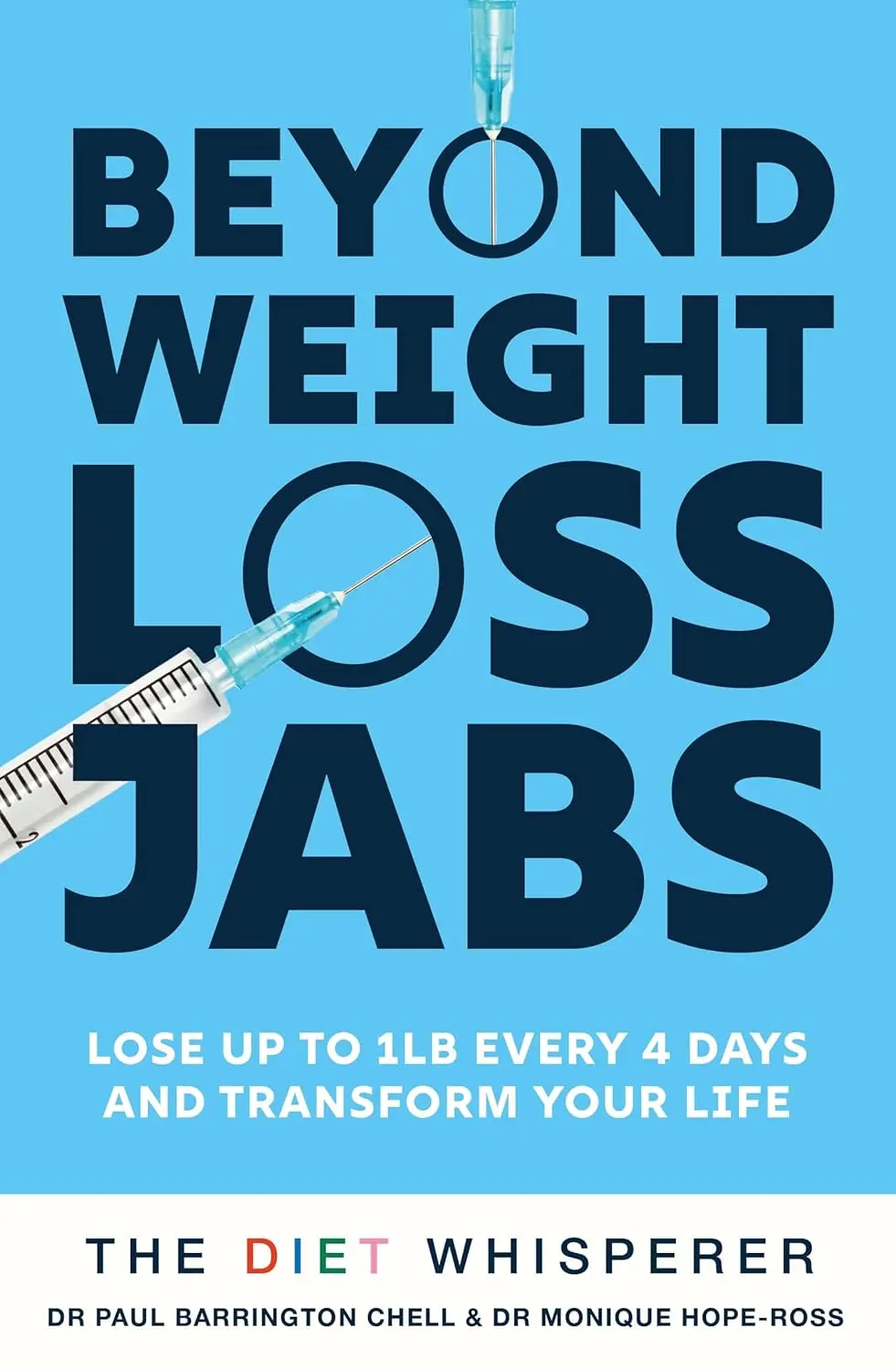How does late-night eating affect circadian rhythm?
Published: 14th March 2022
Dr Monique Hope-Ross and Dr Paul B Chell
The Earth spins on its axis, giving us the light-dark cycle. We are rhythmical creatures and evolved to adapt to the changing conditions of day and night. All life on Earth has circadian rhythm, the predictable physical and mental changes that occur throughout the 24-hour light-dark cycle. It is a natural, largely independent cycle, that repeats daily, controlling our bodily functions.
Melatonin, the sleep hormone rises as day turns to evening twilight, making us feel sleepy. As the day dawns, melatonin falls and disappears, as we awaken. As we stir, our heart rate increases, our body temperature rises and the morning boost of cortisol ensures we are ready to face the day. This is circadian rhythm. Our bodies anticipate the changing conditions of the day, and our genes prepare and adjust our bodies for the necessary adaptations.
Our hormones are produced at different points of the light-dark cycle, anticipating our biological needs for those times.
Our bodily processes are controlled in a circadian fashion. The activity of our organs and hormones are coordinated, smoothing out situations arising from a surplus or lack of nutrients. For example, the liver, our food processor must be coordinated with insulin, the storage hormone. This coordination prevents high levels of blood glucose after eating. The coordination of organs is controlled by our circadian clocks.
Figure 2. Every cell and every organ has body clocks. These allow the coordination of biological processes so that they anticipate and coincide with the light-dark cycle.
Clock synchrony is necessary for good metabolic health
We have body clocks in every one of our 31 trillion cells. Our unique master clock is located in our brain and detects day and night. Triggered by blue light entering the eye, the master clock signals the time to all our body clocks. It resets our body’s cellular and organ clocks every day, so that all clocks have the same time and chime in unison. Just like a well-trained orchestra, timing is everything. When all our body clocks are aligned and chime at the same time; we sleep well, our metabolism is healthy, and we are lean. Hormones rise and fall at set times; our bodies function optimally and the pattern is repeated daily. We call this clock synchrony.
External influencers (zeitgebers) reset our body clocks
Clock timing is affected by external influencers called zeitgebers. Light and the timing of our food are the most powerful zeitgebers. The zeitgeber of the master clock is light, which changes the time every day, to fit in with the rotation of the earth.
Other zeitgebers, such as food affect other organs. Food timing resets clocks in the gut. When food timing coincides with the light-dark cycle, the gut clocks chime with the master clock and the clocks are synchronous. If food timing does not coincide with the light-dark cycle, such as midnight eating, then clock dyssynchrony or circadian misalignment develops. And the bad news is that clock dyssynchrony is associated with metabolic disruption and a raft of metabolic diseases.1
Night shift workers are known to have a higher risk of metabolic diseases than others. 2 Disruption of circadian rhythm is partly responsible. Those people with the largest disruption of their circadian rhythm have the largest risk of poor glucose metabolism, leading to insulin resistance, type 2 diabetes (T2D) and obesity. This risk is not insignificant, with rotating shifts being particularly implicated. 3 Every five years of rotating shift work increases the risk of diabetes by 11%.
In shift workers, the normal rhythm of hormone production is disrupted; leptin our satiety hormone is decreased leading to increased hunger, insulin resistance and melatonin release is disrupted, leading to sleep disturbances. 3
Recent research has shown ways to reduce the risk of metabolic diseases in shift workers. Maintaining daytime eating, despite night-time work has been shown to reduce circadian clock dyssynchrony in laboratory experiments. 2 But some people may be more predisposed than others to circadian misalignment due changes in their period gene (an important clock gene). 4
Late-night eating causes clock dyssynchrony
Eating a meal involves extensive coordination involving multiple organs and enzymes. Digestion, absorption, processing and storage are complicated processes. The gut treats any food and drink as a meal, even if we consider them to be snacks. The gut takes up to four hours to process food and much longer if we are asleep. At best, our gut can function for eight to ten hours a day. If our EatSpan is longer that this, we can expect to see clock dyssynchrony.
Late-night eating means food processing is required at night and this conflicts with our circadian rhythm and sleep. Sleep quality is reduced. Gut motility has already slowed down, and the liver’s food processing mechanisms are not primed for food, thus functioning poorly. Resetting the gut clocks by eating late results in clock dyssynchrony.
High blood sugar characterises late night eating
As insulin resistance is naturally cyclical throughout the day and is highest at night, glucose and fats rise in the blood, and high blood sugar characterises late-night eating. 5 Habitual late-night eating is associated with high blood sugar at night, insulin resistance, weight gain, and disturbances of metabolism followed by metabolic disease.
We get a double whammy from late-night eating: suffering from both poor-quality sleep and metabolic diseases.
What is late-night eating?
There is no strict medical definition of late-night eating. We can broadly say it is having food or drink within 3-4 hours before sleep or after 18.00, whichever is the earliest. Also, eating over 25% of the daily energy in the evening appears to be the most disruptive.
Most of us are not shift workers, but still eat late at night. Our modern lifestyle is conducive to late-night eating. But this does not fit with our circadian rhythm. Unsurprisingly, we can’t change the rotation of the earth, millions of years of evolution and our circadian rhythm.
Eating late increases EatSpan. If we eat breakfast and then eat late, EatSpan can be up to 14-15 hours, more than the optimal 8-10 hours. This means insulin is circulating virtually all day, another factor in the development of insulin resistance, type 2 diabetes and weight gain.
Figure 3. Gut bugs act as an organ that is crucial for your health, influencing mental health, immunity, and metabolism. They outnumber us in number and genetic power.
Gut bugs change with late-night eating
Gut bugs also have circadian rhythm, and are primed to receive food during the day, rather than late at night. At night, the composition of our gut bugs changes. The ‘night cleaners’ come out, digesting debris, mucus, and old gut cells. The next day, following the clean, our digestor bugs take over and perform their magic on our food, mental and physical health.
But if we go to sleep with food in our gut, the digestors don’t get a rest and worse still, the cleaners can’t do their work. In the morning, the gut is a scene of chaos and the tired digestors can’t do their stuff.
So, our gut bugs, vital to health don’t like late-night eating either! In the long-term, gut dysbiosis develops, contributing to metabolic diseases, type 2 diabetes and obesity. 6
Social jet lag disrupts circadian rhythm
Social jetlag occurs when a regular routine during the week changes by more than one hour at the weekend. We stay up hours after our normal bedtime on Friday and Saturday night, eat or drink until late at night, and then wonder why Monday mornings are so bad! We’re not even going to go down the road of *what *we eat late at night, but tired people make poor food choices. These late-night food antics have recently been termed ‘eating jetlag’. 7
In social jetlag, the mismatch of the light-dark cycle disturbs your circadian rhythm. On Monday morning, clock dyssynchrony means we don’t get our early morning cortisol boost, resulting in our Monday morning blues!
Circadian rhythm
Late-night eating causes clock dyssynchrony by setting the gut clocks at a different time to the master clock. This clock dyssynchrony leads to a marked increase in the risk of insulin resistance, weight gain, obesity, T2D, and multiple metabolic diseases.
Whisperings
- The rotation of the earth creates the light-dark cycle and gives all life on earth a natural circadian rhythm.
- Circadian rhythms are the 24-hour cycle of our physical, mental and behavioural changes.
- Body clocks control circadian rhythm.
- The master clock sets the time for our 31 trillion body clocks.
- Zeitgebers, our external influencers, affect the timing of body clocks.
- Light and food timing are the most powerful zeitgebers.
- Clock synchrony means that the master clock and the body clocks chime in unison.
- Clock synchrony means a healthy metabolism.
- When food timing does not coincide with the light-dark cycle; body clocks become dyssynchronous.
- Clock dyssynchrony is associated with insulin resistance, weight gain, T2D and other metabolic diseases.
- Late-night eating causes clock dyssynchrony.
- Late-night eating adversely affects the composition of gut bugs.
- The functions of gut bugs deteriorate with late-night eating.
- Social jetlag and the associated late-night eating and drinking disrupts circadian rhythm.
References
-
Khan S, Malik BH, Gupta D, Rutkofsky I. The Role of Circadian Misalignment due to Insomnia, Lack of Sleep, and Shift Work in Increasing the Risk of Cardiac Diseases: A Systematic Review. Cureus. 2020 Jan 9;12(1):e6616. doi: 10.7759/cureus.6616. PMID: 32064196; PMCID: PMC7008727.
-
Chellappa SL, Qian J, Vujovic N, Morris CJ, Nedeltcheva A, Nguyen H, Rahman N, Heng SW, Kelly L, Kerlin-Monteiro K, Srivastav S, Wang W, Aeschbach D, Czeisler CA, Shea SA, Adler GK, Garaulet M, Scheer FAJL. Daytime eating prevents internal circadian misalignment and glucose intolerance in night work. Sci Adv. 2021 Dec 3;7(49):eabg9910. doi: 10.1126/sciadv.abg9910. Epub 2021 Dec 3. PMID: 34860550; PMCID: PMC8641939.
-
Pan A, Schernhammer ES, Sun Q, Hu FB. Rotating night shift work and risk of type 2 diabetes: two prospective cohort studies in women. PLoS Med. 2011 Dec;8(12):e1001141. doi: 10.1371/journal.pmed.1001141. Epub 2011 Dec 6. PMID: 22162955; PMCID: PMC3232220.
-
Cheng P, Tallent G, Burgess HJ, Tran KM, Roth T, Drake CL. Daytime Sleep Disturbance in Night Shift Work and the Role of PERIOD3. J Clin Sleep Med. 2018 Mar 15;14(3):393-400. doi: 10.5664/jcsm.6984. PMID: 29510794; PMCID: PMC5837840.
-
Lopez-Minguez J, Saxena R, Bandín C, Scheer FA, Garaulet M. Late dinner impairs glucose tolerance in MTNR1B risk allele carriers: A randomized, cross-over study. Clin Nutr. 2018 Aug;37(4):1133-1140. doi: 10.1016/j.clnu.2017.04.003. Epub 2017 Apr 10. PMID: 28455106; PMCID: PMC5634913.
-
Ni Y, Wu L, Jiang J, Yang T, Wang Z, Ma L, Zheng L, Yang X, Wu Z, Fu Z. Late-Night Eating-Induced Physiological Dysregulation and Circadian Misalignment Are Accompanied by Microbial Dysbiosis. Mol Nutr Food Res. 2019 Dec;63(24):e1900867. doi: 10.1002/mnfr.201900867. Epub 2019 Nov 6. PMID: 31628714.
-
Boege HL, Bhatti MZ, St-Onge MP. Circadian rhythms and meal timing: impact on energy balance and body weight. Curr Opin Biotechnol. 2021 Aug;70:1-6. doi: 10.1016/j.copbio.2020.08.009. Epub 2020 Sep 29. PMID: 32998085; PMCID: PMC7997809.

